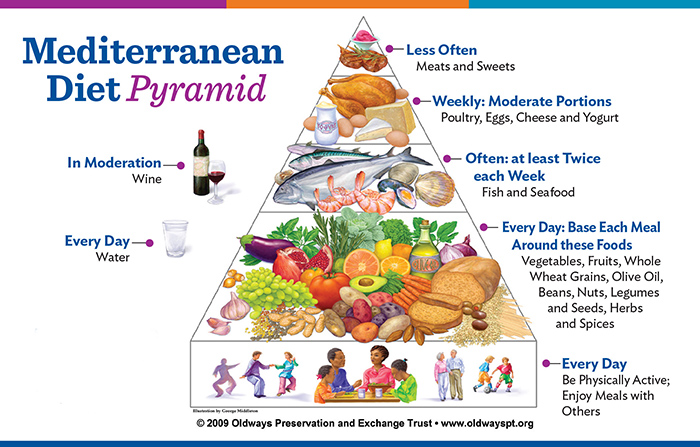Savoring Wellness: A Comprehensive Guide to the Mediterranean Diet

Embark on a journey towards heart health and longevity with the Mediterranean diet—a nutritional approach rooted in the traditional eating habits of people in countries bordering the Mediterranean Sea. This renowned diet is not just a means to lose weight; it’s a lifestyle celebrated for its numerous health benefits. Let’s delve into the specifics of the Mediterranean diet, exploring who it caters to, its advantages, potential challenges, and the delightful array of foods to embrace.
Who Does the Mediterranean Diet Fit?
The Mediterranean diet is inclusive, suitable for a wide range of individuals. It’s particularly well-suited for those seeking heart health, reduced inflammation, and a lowered risk of chronic diseases. This diet is adaptable to various dietary preferences and is renowned for its emphasis on fresh, whole foods.
Benefits of the Mediterranean Diet:
- Heart Health: Rich in heart-healthy fats like olive oil and omega-3 fatty acids from fish, the Mediterranean diet supports cardiovascular well-being.
- Anti-Inflammatory: Packed with fruits, vegetables, and nuts, this diet has potent anti-inflammatory effects.
- Weight Management: The focus on whole, nutrient-dense foods aids in weight control and maintenance.
Potential Challenges:
While the Mediterranean diet offers a plethora of benefits, challenges may arise for those accustomed to a diet high in processed foods or saturated fats. Access to fresh and seasonal produce might also pose a challenge depending on geographical location.

What Not to Eat on the Mediterranean Diet:
- Processed Foods: Minimize the intake of processed and refined foods.
- Sweets: Limit consumption of sweet treats and items with added sugars.
- Red and Processed Meat: Limit consumption of red and processed meats to 1-2 times weekly.
What to Eat on the Mediterranean Diet:
- Olive Oil: A cornerstone of the diet, olive oil provides heart-healthy monounsaturated fats.
- Fruits and Vegetables: Abundant in antioxidants, vitamins, and minerals.
- Fish: Opt for fatty fish like salmon, mackerel, and sardines for omega-3 fatty acids.
- Whole Grains: Choose whole grains like brown rice, quinoa, and whole wheat bread.
- Nuts and Seeds: Almonds, walnuts, and flaxseeds add healthy fats and crunch.
- Low Fat Cheese: In moderation low fat cheese and dairy items can provide much needed calcium.
Sample Meal Plan:
Breakfast:
- Greek yogurt with honey and fresh berries.
- Whole grain toast, 1 fried egg, with a quarter of avocado.
Lunch:
- Grilled chicken or chickpeas with mixed greens, quinoa, tomatoes, sliced cucumber, olives, and feta cheese, tzatziki sauce.
- Low fat cottage cheese with fruit and sliced nuts.
Snack:
- Hummus with carrot and cucumber sticks.
Dinner:
- Baked or grilled fish with a drizzle of olive oil, lemon, and herbs. Pair roasted vegetables with garlic and herbs.
- Salmon bowl with brown rice, tomatoes, sliced cucumber, olives, feta cheese, tzatziki sauce.
Snack (if needed):
- A small handful of mixed nuts.
Embracing the Mediterranean diet is not just a dietary choice but a lifestyle shift towards nourishing your body with wholesome, delicious foods. As with any significant dietary change, it’s advisable to consult with a healthcare professional, especially if you have specific health concerns.
Written By Prabha Honrath RDN




